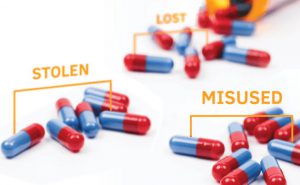The New York Times recently published an article entitled “Drug Testing Poses Quandary for Employers.”
In the article, the reporter references data from the Quest Diagnostics Drug Testing IndexTM:
“But Quest Diagnostics, a prominent provider of workplace drug tests, said that the rate of employees testing positive for prescription opiates rose by more than 40 percent from 2005 to 2009, and by 18 percent last year alone. The data, culled from the results of more than 500,000 drug tests, also indicated that workers who were tested for drugs after accidents were four times more likely to have opiates in their systems than those tested before being hired.”
The importance of drug testing policy development is emphasized in this quote:
“Dr. Barry Sample, director of science and technology for the Employer Solutions business of Quest Diagnostics, said the smartest thing employers can do is come up with a thorough and consistent policy that spells out which drugs their workers might be tested for and under what circumstances. Supervisors, he said, should be carefully trained to look for signs of impairment — the “reasonable suspicion” necessary under law to warrant testing. They need to understand what constitutes reasonable suspicion,” he said, “and make sure the policy is communicated clearly and very well to the employees who are going to be impacted.”
To read the full article, click here.
For more information about drug testing, visit our website.
 Your Privacy Choices
|
Privacy Notices
|
Terms
|
Language Assistance / Non-Discrimination Notice | Asistencia de Idiomas / Aviso de no Discriminación | 語言協助 / 不䈚視通知
Your Privacy Choices
|
Privacy Notices
|
Terms
|
Language Assistance / Non-Discrimination Notice | Asistencia de Idiomas / Aviso de no Discriminación | 語言協助 / 不䈚視通知



















The New York Times recently published an article entitled “Drug Testing Poses Quandary for Employers.”
In the article, the reporter references data from the Quest Diagnostics Drug Testing IndexTM:
“But Quest Diagnostics, a prominent provider of workplace drug tests, said that the rate of employees testing positive for prescription opiates rose by more than 40 percent from 2005 to 2009, and by 18 percent last year alone. The data, culled from the results of more than 500,000 drug tests, also indicated that workers who were tested for drugs after accidents were four times more likely to have opiates in their systems than those tested before being hired.”
The importance of drug testing policy development is emphasized in this quote:
“Dr. Barry Sample, director of science and technology for the Employer Solutions business of Quest Diagnostics, said the smartest thing employers can do is come up with a thorough and consistent policy that spells out which drugs their workers might be tested for and under what circumstances. Supervisors, he said, should be carefully trained to look for signs of impairment — the “reasonable suspicion” necessary under law to warrant testing. They need to understand what constitutes reasonable suspicion,” he said, “and make sure the policy is communicated clearly and very well to the employees who are going to be impacted.”
To read the full article, click here.
For more information about drug testing, visit our website.